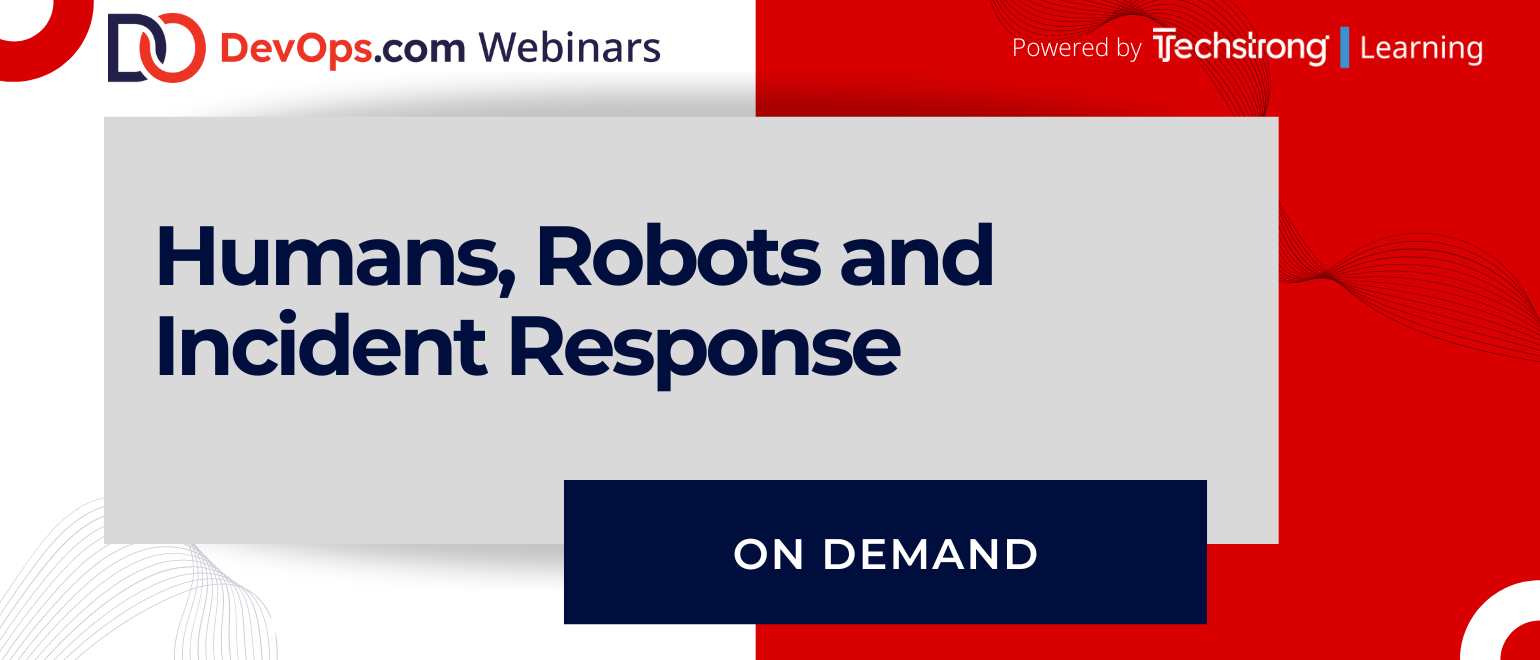Webinar
Think About Your Audience Before Choosing a Webinar Title

Sponsored by AWS & Pagerduty 
What You’ll Learn in This Webinar
Once upon a time, there was a glass wall separating the ops room and the server room. When an incident happened, everyone gathered together to troubleshoot and reach a resolution. But that was then - in the pre-cloud era. Now, when an incident happens in the cloud era, teams need to collaborate remotely to resolve problems on services that are no longer hosted on-premises. This requires a different approach.
A major part of this approach is making incident response better for humans on-call. There are two major ingredients to this: Automation and communication. When humans don't need to be involved, leverage automation to ease the on-call burden. When humans do need to be involved, ensure that communication flows smoothly between responders and stakeholders, even if you’re separated by time zones and continents rather than a glass wall.
In this webinar, you’ll learn:
- How the new cloud era is changing incident response needs
- How to make incident response processes easier for humans in high-stress moments
- What PagerDuty’s incident response process looks like and our latest operational learnings







